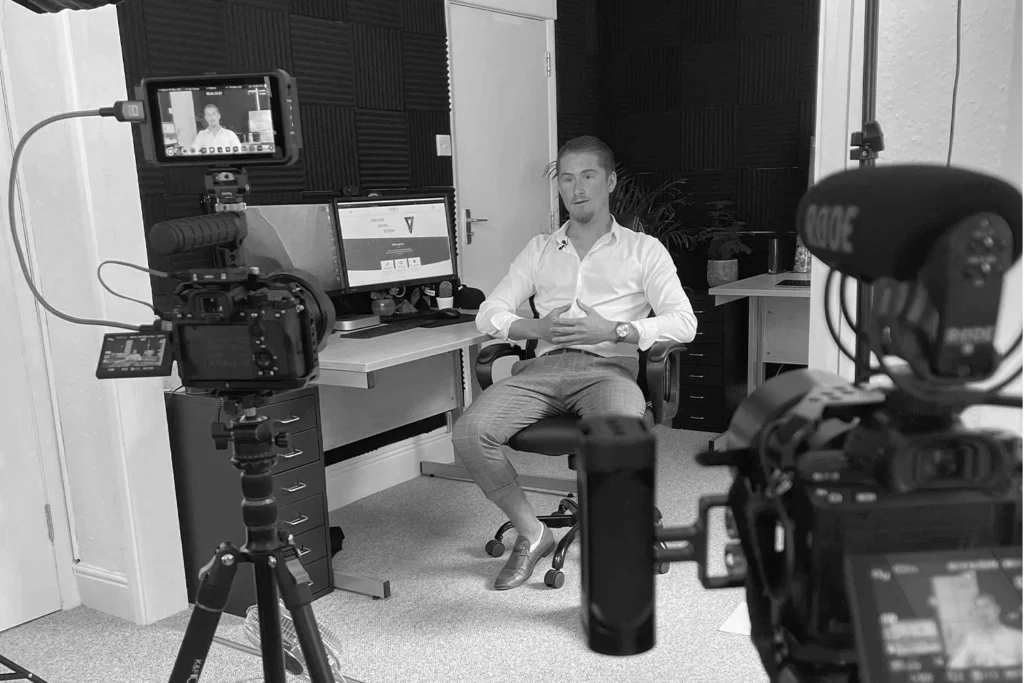- Why You Need a Website for Your Business (and How to Get One)
- Try Not to Overload With Too Much Information.
- The Three Different Types of Websites
- Free vs Paid
- What are the Costs Involved?
- Pick a Niche
- Create Content People Will Love
- Make sure it’s Mobile-Friendly
- Don’t Skimp on Professional Quality Photos
- If you are passionate about SEO, optimize. If not, don’t worry about it.
- Don’t Forget About Video!
Why You Need a Website for Your Business (and How to Get One)
When you’re trying to get your business up and running, it can be tempting to take shortcuts that you’ll later regret. One shortcut you shouldn’t take, however, is not having a website to act as the foundation of your online presence. In this article, we’ll explain why you need a website and how to choose the right one to grow your business. We’ll also show you how to start off on the right foot with your new site by securing an affordable, quality web designer in Devon—one who can take care of all of your web design needs and much more!

Try Not to Overload With Too Much Information.
With so much information at our fingertips, it can be tempting to load your website with everything you’ve learned. Resist that urge. Nobody wants to spend a lot of time poring over your website searching for what they need – and customers are more likely to trust a succinct, easy-to-navigate site than a lengthy one. Instead of trying to put too much on your website, focus on providing just enough information that makes sense given your goals and audience.
The Three Different Types of Websites
There are three different types of websites available today, and each one serves a different purpose. Knowing which type of website is right for your business will go a long way in determining what kind of website you need to build. The first type of website is designed for e-commerce or selling products or services directly from your website. The second type of website is designed to provide information about your company’s products or services rather than sell them directly from your site. The third type of website allows users to interact with other people on social media sites like Facebook, Twitter, Instagram and Pinterest.
Free vs Paid
Free and paid website hosting both have their pros and cons. Free sites can be a great option for personal sites or side projects, but many businesses want to give off a professional vibe that won’t come across with a free host. This is where paid hosting comes in. Paid hosts often offer more features and better service than free options; however, with all of these buts it might not seem worth it to shell out money. But remember that your website is your shop window, so no matter how small your business or startup may be, if you want your site visitors to convert, put in effort on designing a stellar online storefront.
What are the Costs Involved?
There are a number of costs involved with buying a website. There’s cost of ownership, which covers monthly hosting fees, domain name renewals and any upgrades or improvements you make to your site. Then there’s start-up costs, including development and design costs and any software licenses you may need. Finally, there are transaction costs: When you want to buy a new domain name or pay for new services such as search engine optimization (SEO), any transaction fees come out of your pocket too.
Pick a Niche
Selecting a niche for your website is one of those things that can feel pretty overwhelming at first. After all, it’s no small task! And yet, with a little research and creativity, it can be much easier than you think. For example, if you are a plumber and you want to create a website for marketing purposes only — i.e., not for selling on your site — then maybe it makes sense for you to pick something general like plumbing rather than an even more specific plumbing service like drain cleaning in New York City. That way you have lots of options when it comes time to writing new content or adding links.
Create Content People Will Love
Creating content people love online for your website is just as important as having a website for your business. Relevant, useful, and high-quality content makes it easier for potential customers to find you on search engines. And, yes, you can create your own content—but outsourcing to an expert who can provide stellar content on all channels is more time efficient. Read on for more information about why and how you should create online content for your company.
Make sure it’s Mobile-Friendly
Because almost all users are using mobile devices to browse websites, it’s important to make sure your website is mobile friendly and responsive. Visitors who come to your site on their smartphone or tablet will have an unpleasant experience if they can’t read everything on your page. Also, Google favors mobile-friendly sites in its search results. Make sure you hire a web design company that can help you create and maintain a responsive website.
Don’t Skimp on Professional Quality Photos
It’s not uncommon, in fact it’s downright common, for small business owners to skimp on professional quality photos. Yet if you want your website be as professional as possible, you should absolutely invest in quality photos. Professional photos are those that were taken by a professional photographer with high-quality equipment. This is what makes them different from any other photo of yours that may have been taken with your phone or a camera at home.
If you are passionate about SEO, optimize. If not, don’t worry about it.
There are plenty of reasons to invest in a professional website, but it’s most important to understand the importance of setting it up your SEO correctly. The best websites for businesses—especially startups that rely on organic traffic to drive sales—are built with search engine optimisation in mind. Because it helps bring people to your site, search engine optimisation is one of the most important factors when planning a website’s design. It’s not difficult or overly technical, but it is essential if you want your new business to succeed online.
Don’t Forget About Video!
Video has become an essential part of digital marketing. And by video, we don’t just mean a YouTube channel. If you can get your hands on one, having a professional promotional video made is a great way to set yourself apart from your competitors. These days, even small businesses are turning to websites and email newsletters as tools for branding, so having that extra added attention on your website might help you make more sales. Videography often makes sense if you want your business to be recognized in online reviews and rankings.





